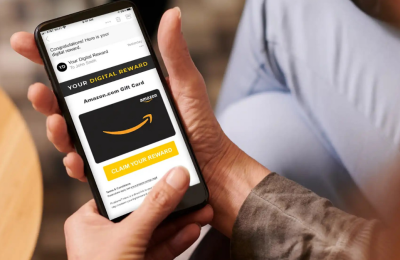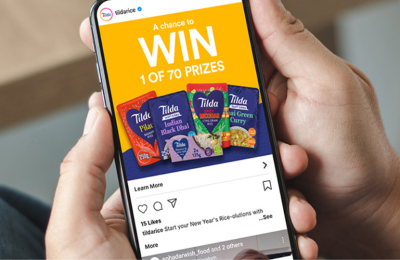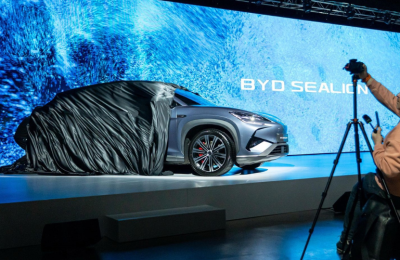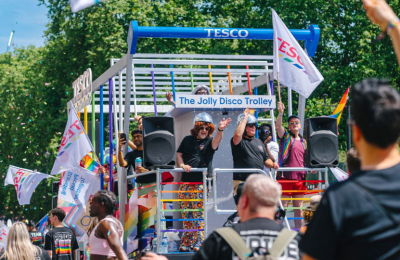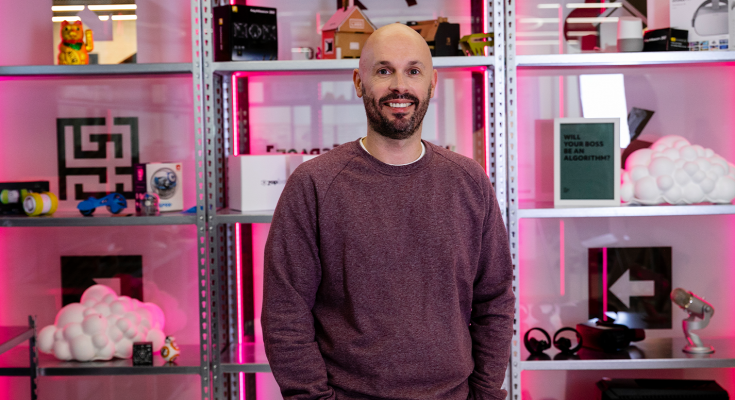New research out today reveals the vast majority (92%) of C-Suite decision makers at brands are investing more in mobile technologies this year, aiming to respond to the high benchmarks mobile-first businesses are setting when it comes to consumer experience.
The research, conducted for experience marketing agency George P. Johnson, surveyed C-Suite decision makers at brands with 500+ employees, asking about their knowledge and plans around the use of mobile in marketing. The results show that despite respondents recognising the value of mobile, businesses are still facing a multitude of barriers when it comes to realising its full potential. Meaning that they are missing out on delivering the sort of brand experiences that consumers have come to want, and expect, as a result of the mobile-first leaders.
The main barriers to introducing new tech (including mobile) as cited by the survey respondents, were integrating platforms into current architecture (26%), confidence in new tech working (24%) and speed to ROI (21%). Only 3% of respondents felt there are no main barriers to this type of marketing innovation.
The importance of overcoming these barriers is clear, with some 93% of respondents saying that mobile-first businesses, such as Uber and Monzo, have driven increased consumer expectations of brands, a figure that rises amongst larger companies. These mobile-first disruptors are very much part of the rise of the experience economy which has changed the business landscape over the past decade.
The research also suggests keeping up with these expectations is only set to become more challenging. Despite 67% of respondents in companies with over 5,000 employees describing themselves as ‘innovators’, they are also the most likely group to be increasing their mobile budget to meet consumer demands set by other more agile, mobile-first businesses.
This increased spend is being allocated to new technologies. Some 62% say the budget is going towards augmented reality, while 55% say the additional spend has been allocated to chatbots and messaging. As a result, consumers can expect to see brands’ use of these emerging technologies accelerate in the coming months – something brands should monitor when thinking about future brand experience strategy.
When it comes to sector performance, finance and banking (46%), FMCG (45%), consumer electronics (42%) and media & telecoms (42%) are the industries where respondents believe brands are most effectively implementing new tech in mobile marketing.
Significantly, only 37% of respondents name retail as a sector making effective use of mobile in marketing, despite respondents saying it is the third largest sector opportunity. This suggests there is a real chance for retailers to use mobile more effectively to meet consumer expectations about experience.
Nick Riggall, VP, Digital Strategy at George P. Johnson says: “Mobile is a habit creator. It has already changed consumer expectations. However, while many of our survey respondents see themselves as innovators, you have to ask why we’re seeing such a big gap between mobile-first businesses and the big brands. The rise of mobile-first approaches should be a lesson for all brands in how to successfully use the technology to create solutions and shape brand experiences at every touchpoint.
Lack of confidence in the tech is an important finding, suggesting it’s being deployed before it’s ready or measurable. For us better targeting, customer service and engagement are the key areas that brands should be focusing on.
The findings, coupled with wider industry context around the way that mobile is impacting consumer expectations, are very meaningful for brands who put exceptional experience at the front and centre of their marketing strategy.”



